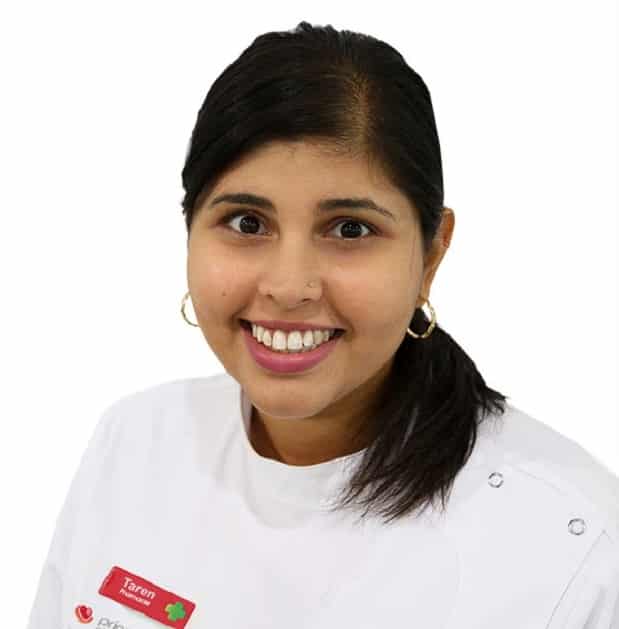The 2014 Young Pharmacist of the Year, Taren Kaur Gill is determined to provide health solutions for all communities in Australia, writes USHA R ARVIND

The title of Young Pharmacist of the Year, awarded by the Pharmaceutical Society of Australia to skilled pharmacists under the age of 35, has been presented to Taren Kaur Gill. This accomplished young woman has been recognised for her outstanding contribution to the community through meticulous and innovative dispensing practices and proven leadership traits, as well as her sociable personality.
Besides her extensive work in aged care and university mentoring, Taren is well regarded for her commitment to quality program development.
“I am humbled to receive this recognition as an early career pharmacist and look forward to using the Symbion Education grant for research and development,” Taren told Indian Link. “It is a great opportunity to meet new people, explore innovative pathways and build better pharmacy services to help communities. I look forward to a long and rewarding career as a community pharmacist,” she added.
A second generation Sikh-Australian, Taren holds a degree in Pharmacology and a Masters in Pharmacy and currently works in rural NSW as a network pharmacist for Lion Retail Management Group. Besides being an accredited pharmacist and consultant, Taren is also a smoking cessation clinician and trained supervisor from the Australian Institute of Management (AIM).
As a Network Pharmacist, she manages over 500 employees and seven dispensaries, including Priceline and BestBuy across NSW, WA and Victoria. She holds an academic position at Charles Sturt University and is also a valued member of the National Student Leadership Forum on faith and values in the Australian parliament.
After a stint in Sydney, Taren and her husband moved to Orange six years ago to broaden their horizons.
Cherishing her work as rural pharmacist, Taren has enjoyed a warm working relationship with her close-knit community.
“I have worked both in Bega with a population of 4500 and Orange with a population of 40,000. It has been a positive and enriching experience,” she said.

For Taren, the highlights of her career are the daily wins. It could be improving someone’s medication compliance, making them more comfortable in the last days of their life, helping a new mother feed her newborn, managing a diabetic’s medicines, tending to a patient’s mental health issues, or helping a staff member or young pharmacist become more confident, enabling them to reach their full potential.
“I enjoy communicating and connecting with people from all walks of life and my overarching aim is to build better pharmacies to help communities,” Taren said. “There is no profession that brings together health science, talking and helping people like pharmacy does.”
The price-cutting and discount wars that are threatening to undermine the industry disturb Taren to a large extent.
“Discounting by some major pharmacy groups is dumbing down our profession. Pharmacists are not just shopkeepers, we are experts in medicine and are there to help people. I urge the community to shop at a pharmacy that gives exceptional advice and service, not because it is the cheapest. Go to a pharmacist who sees you as a human and treats you as a patient in need and not just another customer.”
Taren finds great inspiration in Sikh ideology and her Punjabi culture. “As a staunch Sikh, my husband wears a turban and my son will also be keeping his hair. We definitely stick out in the crowd, but this has always worked to our advantage. A little bit of education goes a long way and we are loved and respected here. If someone asks us a question about being Indian or Sikh we answer it and we encourage our friends to ask us.”
Currently on maternity leave, Taren already has ambitious plans for when she returns to work. “I would like to keep my finger on the pulse of our industry and who knows – maybe buy a pharmacy of my own! I see this recognition as a springboard to further learning.”

Taren sees plenty of growth opportunities for Indian-origin pharmacists in Australia.
“Often there are communication gaps between the GP or pharmacist and the migrants with English as their second language. I believe multilingual pharmacists could bridge this gap.”
Taren plans to further research and incorporate traditional Indian medicinal practices with modern medicine, and to continue to help in educating people who need medical attention to achieve a better quality of life.




